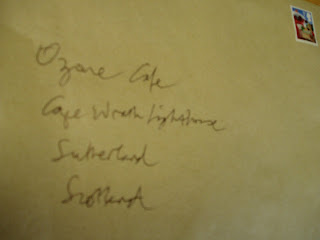GB top athlete distracted by real life in 2011
Followers will be disappointed to know I am unlikely to be selected for the GB cycling team at the Olympics, just down the road in six months time. There are several reasons for this, what with me being untalented, unfit, overweight and too old; but my training hasn't kept with the programme. I've been busy with real life; indeed I've been so busy I haven't even Big Swifty blogged for a few months. So here's a summary of 2011, for anyone else who's in danger of Olympic selection, and would like to follow my training programme, thereby getting a ticket to watch the sport from the sofa:
Familiar readers of Big Swifty will know that diabetes dominates our life, as we have a five year old who is a Type 1 diabetic. The disease does not define us, but it has to be our priority, and takes up a large chunk of our time, energy and brain power. Our 2011 began with a trip to Addenbrooke’s Hospital in Cambridge,
Homeschooling continues well for us and we are looking forward to more fun times ahead. Our style of homeschooling comes under the “unschooling” umbrella, which means we follow Frank’s interests and thus the world is our classroom! We can find ourselves drawing dinosaurs and reading about them one day, and then rowing on the river pretending to be Ratty and Mole from “The Wind in the Willows” the next. We meet up regularly with other homeschooling families and have been enjoying a variety of activities this year, at people’s homes, in village halls, museums, forest schools, and at Colchester ’s magnificent new gallery “Firstsite”. Next year will see more crafting, science, dinosaurs, Lego, art and music, plus anything else that takes our fancy.
Travel this year for Big Swifty included a very damp and windy time in NW Scotland solo poetry tour/ cycle camping, and a week in Denmark Netherlands Alkmaar , and shared a fabulous central apartment above a toy shop and children’s bookshop, next to a Flemish chip shop, and just round the corner from a chocolate cafe!
Big Swifty's been working for Colchester Travel Plan Club, with enough subscriptions coming in, and funding awards won, to keep the show on the road. And the spoken-word stand-up “Fred Slattern, Colchester ’s Slum Poet”, has gone well with a wide range of gigs, including one in the Scottish highlands, where Fred claims that “I’m a legend in Gairloch”.
Our voluntary work continues with leading a local support group for parents of children with Type 1 Diabetes “Colchester Circle-D”. We now have about 60 members, including adults with Type 1 in the group as well. A highlight was our appearance in the Colchester Carnival, where about 10,000 people saw our message. Our fundraising for JDRF, through Planet Frank , has gone well. We were also played a small part in Walk Colchester’s “Jane’s Walk” festival, appearing at some events at Colchester Slack Space arts venue, taking part in Colchester Street Festival (where Fred read a mercifully short poem to the Mayor), and in the Kidstival at Colchester Free Festival.
So, between all this lovely fun, education, caring, work and homemaking, and the number of hours there are in a year, there has been little training for the Olympics. I've cycled only 1400 miles this year, 1300 of them into a headwind and uphill, I believe.
And next year? We have plans for the house and garden to help us be more self-sufficient; we made a good start this autumn, with a chainsaw, new shed and wood burning stove. All limbs still present, but eyebrows burnt off. And now we're thinking about what else we'll do next year, as I haven't had the call from the Olympics selectors. Whatever we do, and wherever we go, we try to enjoy the ride.
at Facebook “andrew stanley

















